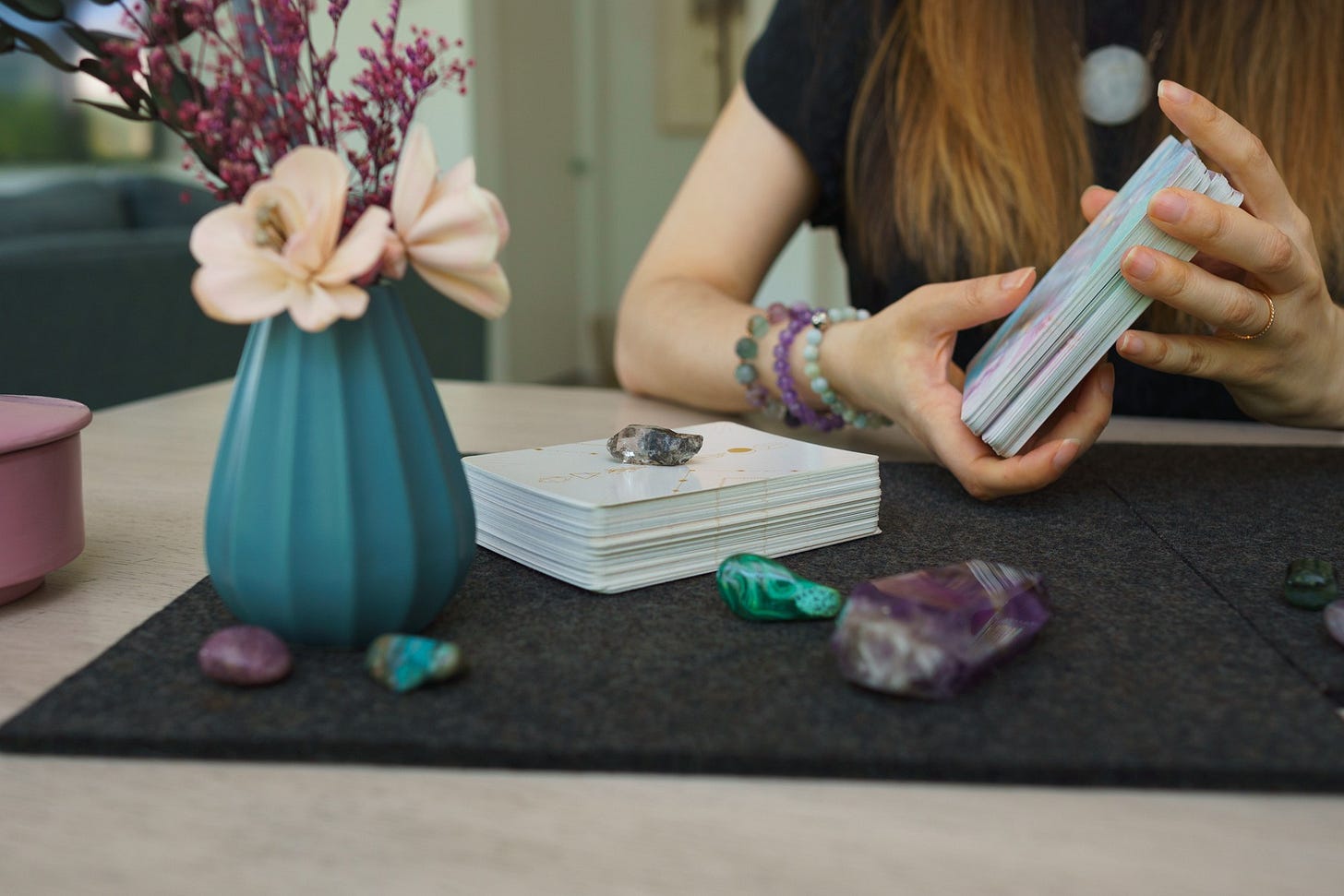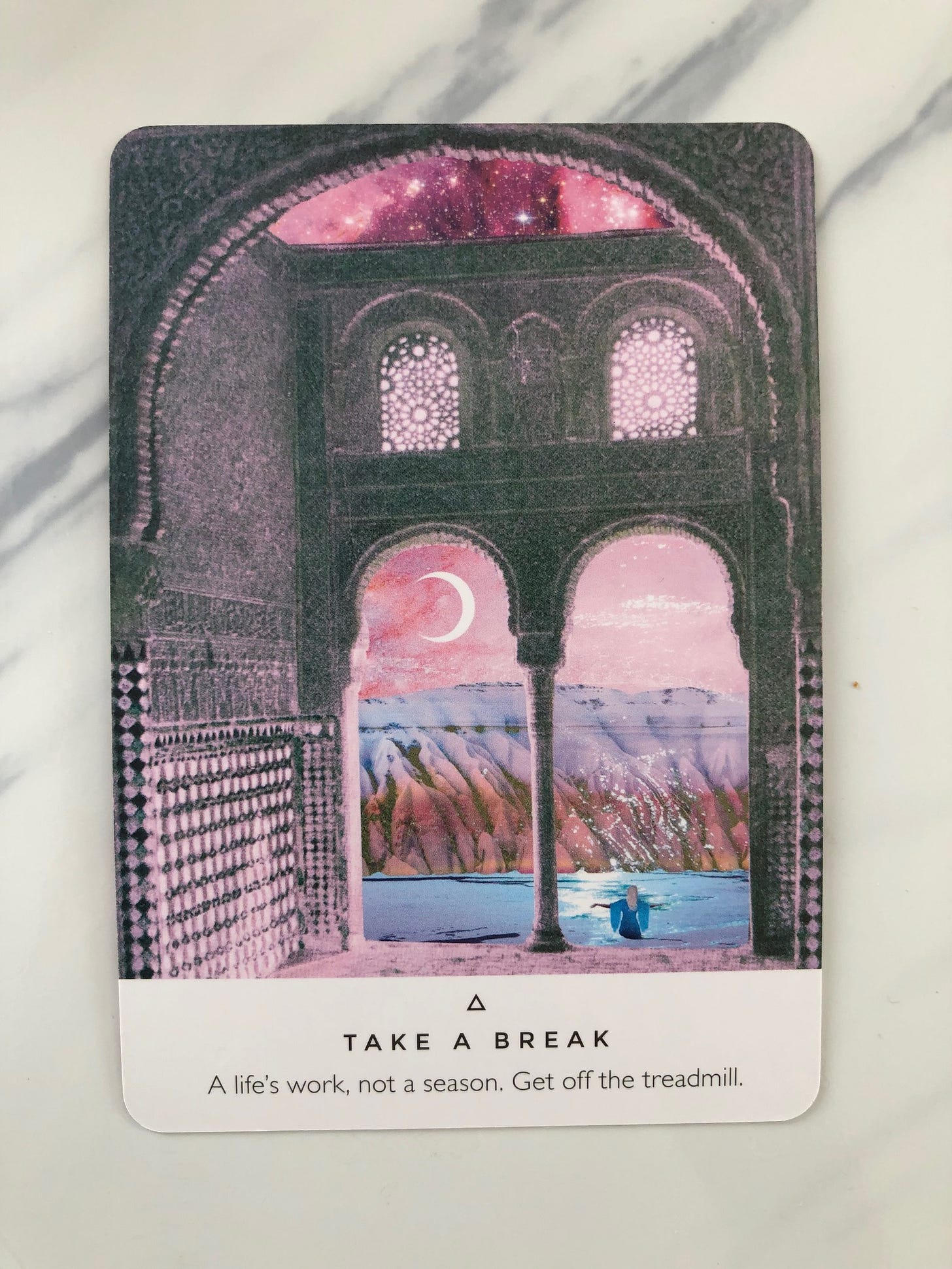Social media is like drinking from a fire hose. It’s fast, loud, endless, and—a lot of fun. But, I’ll be honest, I’m exhausted.
Every time my phone dings with a new follower or subscriber, I get a jolt. Someone is reading me—not because I’m a byline in someone else’s publication, but because my words resonate with them. It’s a deep, personal kind of gratification.
But here’s the thing: while those dings are exciting, they can also be overwhelming. Recently, while I was driving, my phone buzzed—and I got distracted and tapped the bumper in front of me. Of course, it had one of those WARNING: NEW DRIVER stickers on the rear window. I stepped out of my car, trying to lighten the mood with the dad and his teenage kid sitting in the front seat, joking that I was the one who needed the warning sticker. (It wasn’t that funny to them.)
Lately, I’ve been chasing the next email, the next edit, the next post, in such a frantic manner that I can barely remember what I was working on before the last ping came through. The distractions are endless. It feels as though I’m being pulled in a hundred different directions, and the noise is drowning out my ability to focus.
This all came to a head on Monday. Mondays are my check-in day with my coach, and while most of the questions she asks are about my physical progress—how much water I’m drinking, how my training is going—there’s one question that always stops me in my tracks: What are you doing for your mental health?
Sometimes I’ll check the box next to "walks in nature," “mindfulness” or "sauna" (since I stretch in there on most days). But I’ve always skipped the “journaling” option. I mean, I write for a living, and the idea of writing more doesn’t sound relaxing. It feels like one more task on an already too-long to-do list.
Then, I came across a fellow writer here on Substack who actually specializes in journaling: Marcy Farrey, who writes Soul Journaling Sessions. I reached out to ask: How do you even begin a journaling practice? Do I need fancy notebooks? Should I start with "Dear Diary," or just launch into a to-do list?
Her response was gentle and full of wisdom. She suggested combining journaling with something I already love: cards. With a sense of playfulness, she pulled an Oracle card for me, one that read, Take a Break: A life’s work, not a season. Get off the treadmill.
I gasped because it was exactly what I needed to hear (and what I intuitively knew). I realized that I had been rushing through things, letting the noise of all the demands and distractions drown out the wisdom my body and mind were trying to tell me. It felt as though the card was giving me permission to take a break.
Marcy gave me a few prompts to guide my journaling:
- Where in my life do I most often find myself rushing?
- What beliefs fuel this sense of urgency in my life? How might I begin to release them?
- What would an ideal "break" look like for me? How might I use this time to acknowledge and celebrate myself?
- How can I carve out more space for rest and pauses in my daily life?
Inspired, I went to a local art store and bought a beautiful Moleskine notebook and a fancy pen—something that felt special. I wanted my journaling practice to feel special, almost luxurious—not like more work. I made it part of my new pre-bedtime routine: no screens, no distractions, just a few moments of stillness before I drift off to sleep.
I allowed myself to doodle while reflecting on Marcy’s prompts, and soon, the words poured out. I didn’t need to write pages of profound insights—just a few moments of quiet reflection, asking myself how the imagery and messages from the card resonated with my current life.
What’s been so surprising is how much it’s helped. A growing body of research demonstrates that I’m not alone: James Pennebaker, a social psychologist affiliated with the University of Texas at Austin, found that writing about difficult feelings for 20 minutes at a time over four consecutive days was associated with long-term decreases in health problems. Other researchers have found that practicing written expression was associated with improved psychological well-being and physical functioning.
I’ve been struggling with sleep lately. Between reams of writing, deadlines, my training and my kids’ Halloween candy-fueled energy, it feels as though the world’s been spinning (and it kind of has been). But by taking the time to journal, I’m learning how to quiet myself. I’m learning how to hear myself again.
This small act of pausing, of reflecting, has been a reminder that in the midst of all the noise, there’s so much wisdom waiting for us to just listen. Journaling is a practice of compassion, of slowing down, and allowing ourselves the space to breathe, reflect, and be.
As a recovering reporter, I’m realizing words don’t have to just be tools of labor—they can be instruments of healing.
Slowly, I am finding the courage to grow, to heal—and to reclaim that power.







I am with you, Kristi. I felt the same way, but I've found that, having been so burned by journalism, that discovering new forms of writing has felt nourishing in some way. Your note reminds me that I need to try meditation...
How did you two know I needed this?? I feel the same about journaling... it feels like it would be another chore, but maybe that resistance is lame, and it would help my healing journey. Even if I don't physically write, I really need to commit to using some of your prompts, Marcy, to explore all these thoughts, feelings, and beliefs swirling around.
This is by far my favorite post of the week! I feel so fucking blessed to get to call you two my support system. 🌭🫶